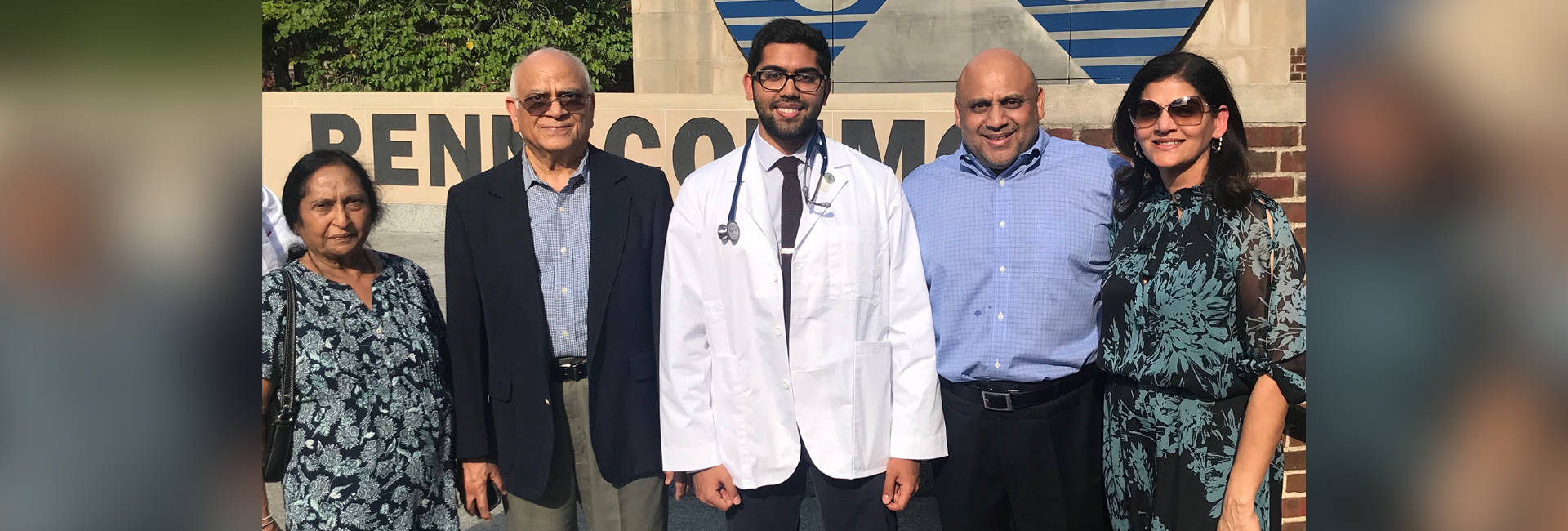(June 10, 2023) The global epidemic of drug consumption continues to cast a dark shadow, infiltrating societies across continents and leaving devastating consequences in its wake. What’s worse is it impacts the most vulnerable and stigmatised populations. In fact, according to he Journal of the American Medical Association (JAMA), between January 2021 and June 2021, about 1,150 youngsters aged 14 to 18 died from drug overdose in the US, and about 47 percent of adolescents started consuming illicit drugs upon graduation from high school. Trying to devise a solution for this pervasive crisis, is a young economist, Dhruv Gaur, who is delving deep into the study of drug use, homelessness, housing insecurity, poverty, and inequality through the lens of economic and epidemiological inference.
The recent recipient of the prestigious Paul & Daisy Soros Fellowships for New Americans, Dhruv is working with various communities to raise awareness about the growing overdose epidemic and advocate for overdose prevention policy. An ambitious, pre-doctoral research fellow at Harvard University, the young economist is currently chasing the causes of inequalities in health and higher education in the USA.
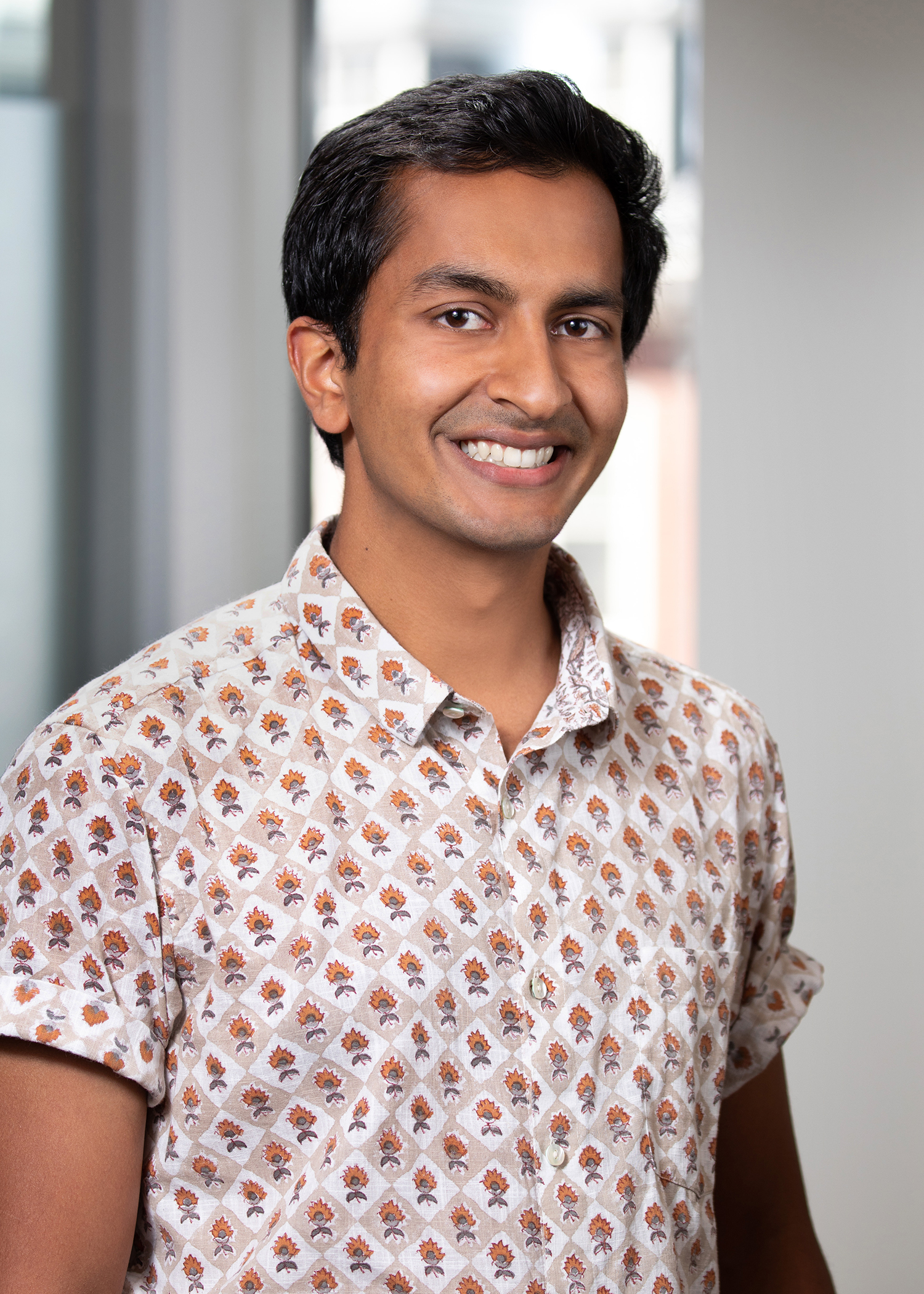
“I actively engage in studying the US overdose crisis, lending my expertise to the critical work of generating research and shaping policies aimed at safeguarding individuals who use drugs from the perils of overdose and other drug-related harms,” shares Dhruv, as he connects with Global Indian for an interview, adding, “I also play a crucial role in the maintenance and management of PreventOverdoseRI.org, a dedicated website specifically designed to combat the overdose crisis. I am determined to contribute to the collective mission of putting an end to the devastating impact of drug overdose in our community.”
A curious cat
Even though Dhruv was born in the USA, the youngster shares that his family ensured that he grew up knowing and learning about his roots. “Both my parents are doctors, and they came over to the United States of America after finishing med school in India. I was born in Pittsburgh, Pennsylvania, where my parents were completing their medical training. We later shifted to a town in Northeast Georgia,” says the young economist, adding, “I grew up around a very tight-knit and supportive Indian community. My parents were quite keen on instilling Indian values in me and my brother, so over weekends, they would drive us to Balvihar, which is a Hindi school.”
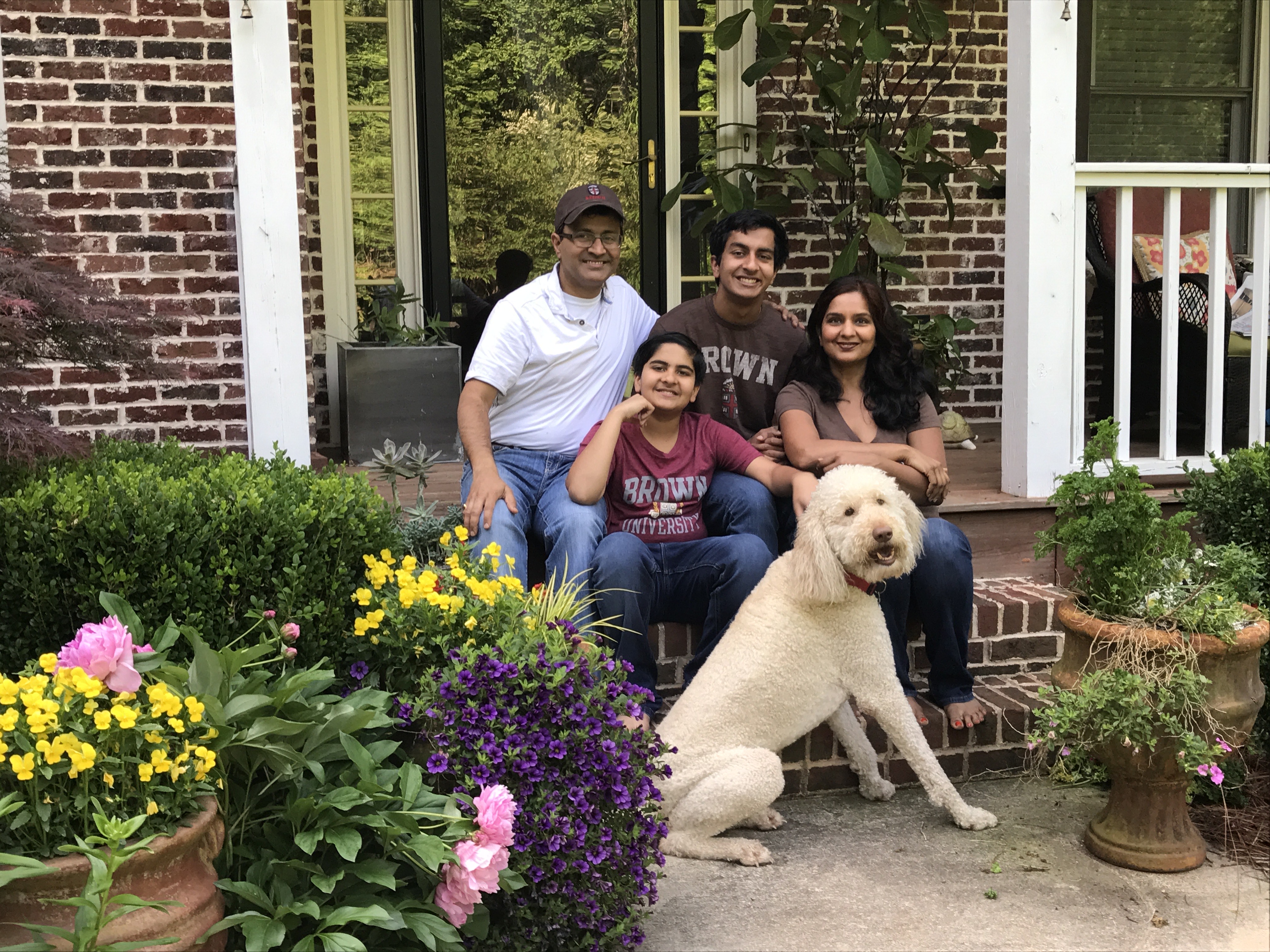

Dhruv with his family
As brilliant as he was, the economist shares that he was also quite a curious child, who not only loved to learn new things but also to pass on the knowledge. “I loved to read, just about anything that I could get my hands on,” he shares, adding, “During my high school years, I had the incredible opportunity to volunteer at Balvihar as a teaching assistant. Little did I know that this experience would ignite within me a deep passion for teaching and mentoring. It was during those moments spent guiding and supporting others that I realised my aspirations to pursue a career as a professor. The impact of that experience has remained with me, shaping my path and fueling my dedication to education and the profound influence it can have on shaping lives.”
A true changemaker
After finishing school, the youngster enrolled at Brown University to study economics and public health policy. Driven by the devastating overdose crisis plaguing his hometown, Dhruv became a part of the People, Place, and Health Collective, contributing as an undergraduate researcher. He actively published academic articles that shed light on crucial aspects of the crisis, providing valuable insights for policymakers and stakeholders.
The economist also played a pivotal role in maintaining real-time data resources, serving as a foundation for Rhode Island’s informed and evidence-based response to the overdose crisis. Through his dedication and contributions, Dhruv has become an instrumental force in the ongoing efforts to combat the overdose epidemic and promote effective policy interventions.
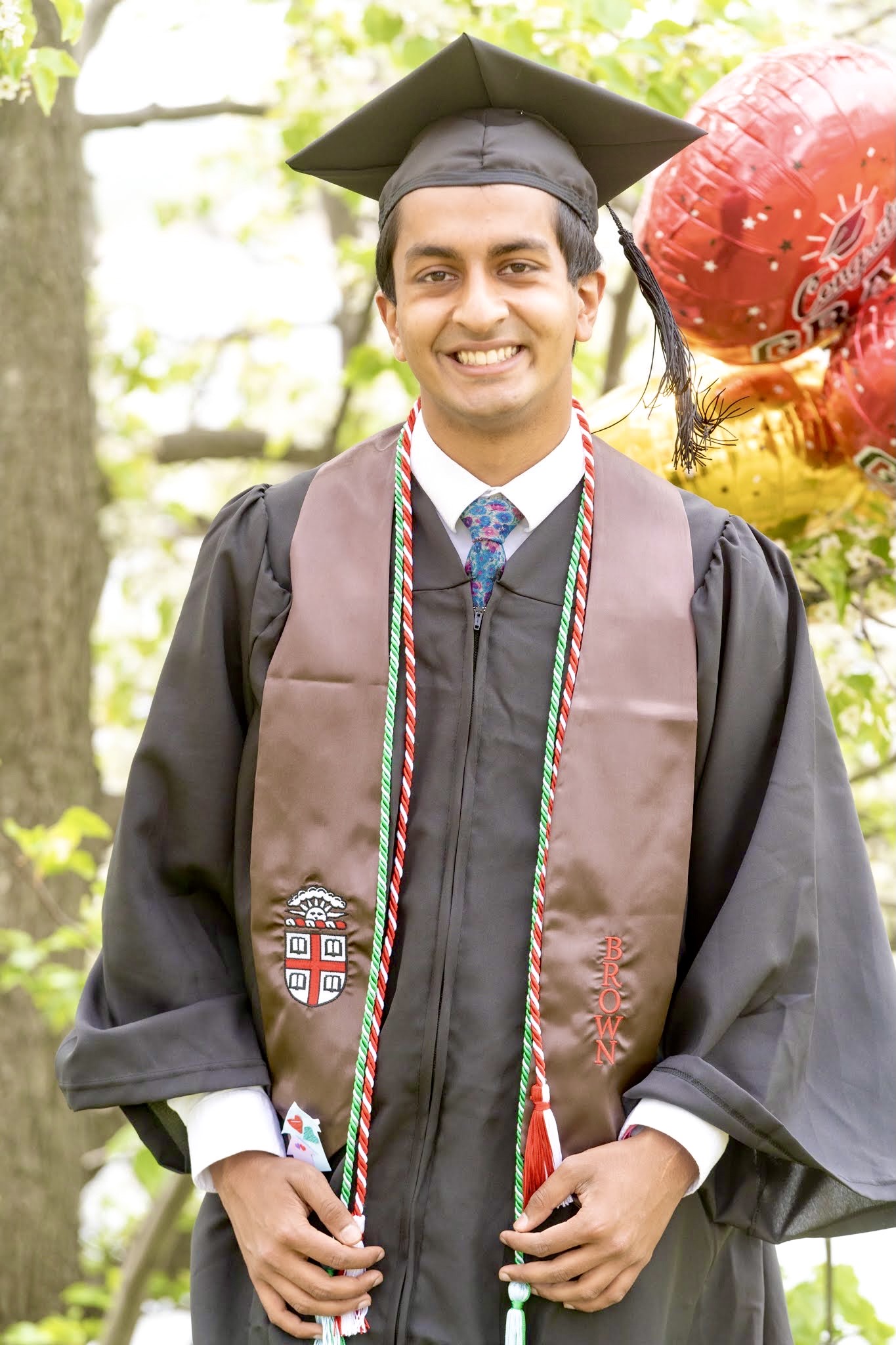

“I held the role of an outreach team leader and finance chair for Housing Opportunities for People Everywhere (HOPE), an organisation driven by students that focuses on direct service and advocacy for homelessness. With HOPE, I led a dedicated night-time homeless outreach team every week, striving to address the immediate needs of individuals experiencing street homelessness and ensuring they are connected to essential resources. I also engaged in advocating for housing policies at both the city and state level in Rhode Island, aiming to effect positive change and promote equitable access to safe and stable housing for all,” the economist shares.
The power of giving
But Dhruv’s journey hasn’t been all about books. In 2018, the economist made his mark on the television show Jeopardy! College Championship trivia tournament, emerging as the victorious contestant and securing a substantial prize of $100,000.
Wait, that’s not all… The following year, he returned to the Jeopardy! stage, capturing the attention of the entire USA for a profoundly heartfelt reason. Answering host Alex Trebek’s Final Jeopardy question, Dhruv put his heart on his screen, writing, “We (heart) you Alex!”, showing his support for the host who was battling stage 4 pancreatic cancer. The gesture moved Alex to tears, and he could only manage to say, “That’s very kind of you.”
Seizing the opportunity to make a difference, Dhruv utilised the platform and the immense public interest to launch a national fundraising campaign dedicated to pancreatic cancer research and successfully raised over $100,000, leaving an indelible impact on both the fight against pancreatic cancer and the power of compassionate unity. “While I was at the show, Alex took a moment to visit the contestants in the green room. It was quite evident that he wasn’t doing so well,” shares the youngster, adding, “Later, when I stepped onto the stage, fully aware that winning the game was an unlikely outcome, I thought I could use this opportunity to support someone in need.”
Interestingly, the economist grabbed the attention of well-known American television host, Ellen Lee DeGeneres, who called him to be on her show a few days later. Impressed by his efforts, Ellen too donated $25,000 toward pancreatic cancer research.
Miles to go
Currently, Dhruv working as a pre-doctoral research fellow alongside esteemed economists Raj Chetty, John Friedman, and Nathaniel Hendren at Harvard University. The young economist is focused on studying the profound inequalities that exist within the realms of health and higher education. Driven by an unwavering commitment to understanding the root causes and far-reaching consequences of severe marginalization, such as drug overdose, homelessness, and poverty, Dhruv aspires to pursue a doctoral degree in economics.
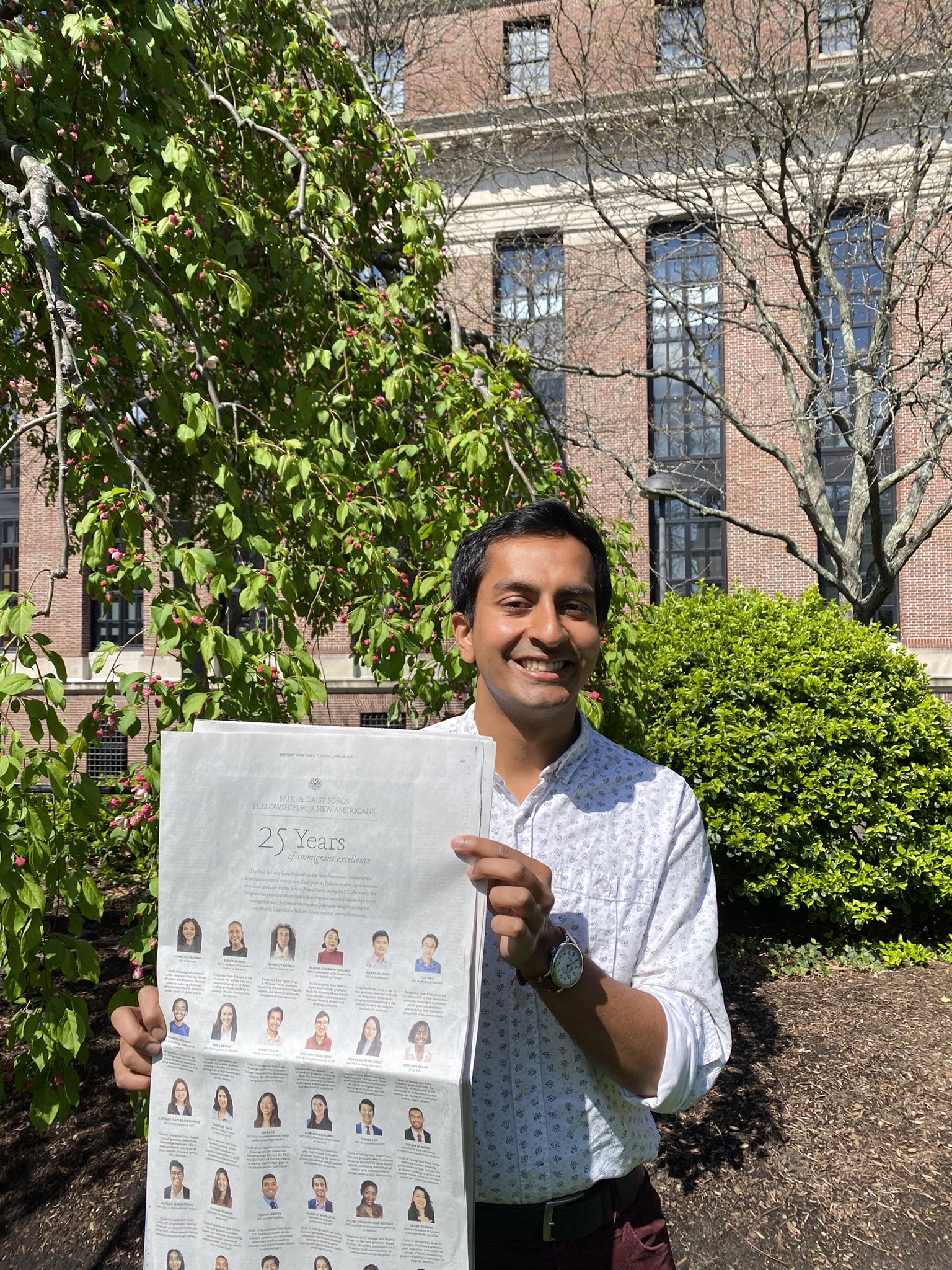

“Through my research pursuits, I strive to unearth valuable insights that have the potential to shape transformative policies, uplifting individuals from these challenging circumstances and fostering a society that is both equitable and inclusive. I aim to contribute to the collective effort of building a brighter and more just future for all,” he expresses.




